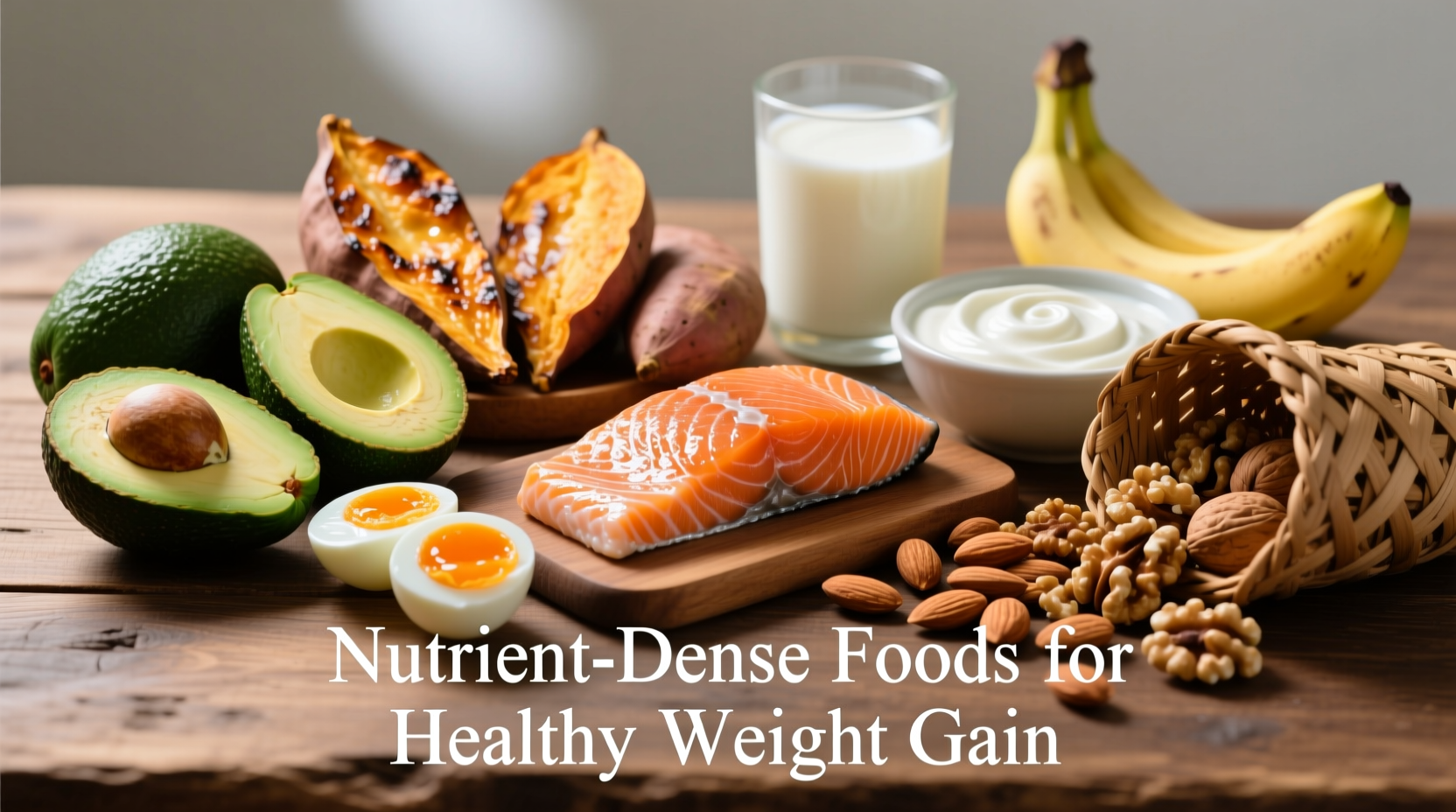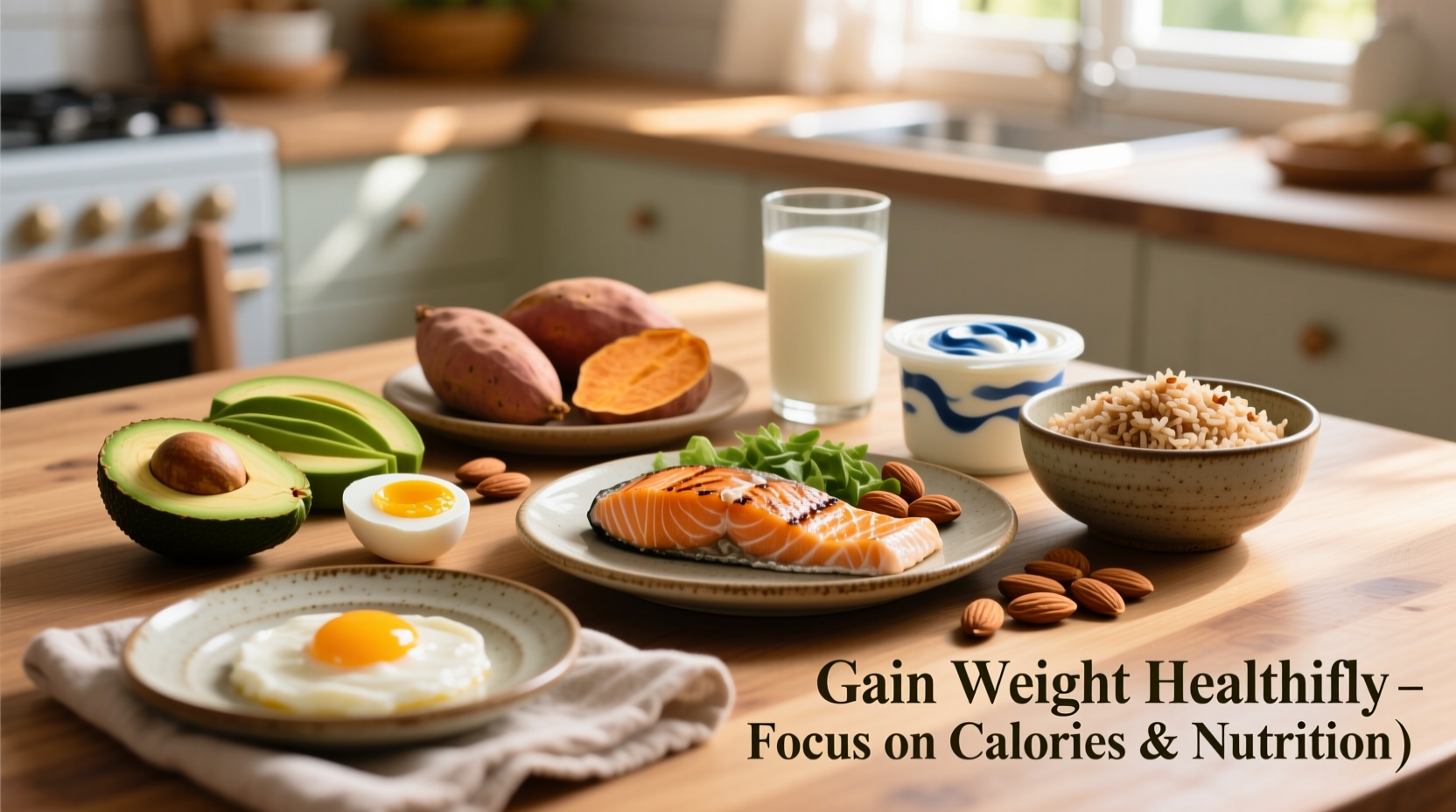Struggling to put on healthy weight? You're not alone. Research shows approximately 3-5% of adults are underweight, facing challenges with energy levels, immunity, and muscle development. The solution isn't just eating more—it's eating smarter. This guide delivers science-backed strategies for healthy weight gain that nutritionists actually recommend, avoiding the common trap of empty calories that damage long-term health.
Why Healthy Weight Gain Matters More Than You Think
Many people mistakenly believe "any calories will do" when trying to gain weight. But according to the National Center for Complementary and Integrative Health, focusing solely on calorie quantity without nutritional quality leads to disproportionate fat gain and potential metabolic issues. Healthy weight gain specifically targets muscle development through proper protein intake and strength training—critical for long-term metabolic health and functional strength.
Your Calorie Surplus Blueprint
Forget extreme calorie counting. Registered dietitians recommend a moderate 300-500 calorie daily surplus for sustainable weight gain. This translates to approximately 0.5-1 pound per week—a rate supported by research from the Harvard T.H. Chan School of Public Health as optimal for muscle development rather than fat storage.
Here's what this looks like in practice:
| Daily Calorie Need | Maintenance Calories | Weight Gain Target | Sample Meal Addition |
|---|---|---|---|
| Lightly Active Woman | 2,000 | 2,300-2,500 | Avocado toast + protein shake |
| Active Man | 2,800 | 3,100-3,300 | Nut butter banana smoothie + trail mix |
| Strength Training Athlete | 3,000 | 3,300-3,500 | Extra chicken breast + olive oil drizzle |
Nutrient-Dense Power Foods That Actually Work
Not all calories contribute equally to healthy weight gain. These scientifically supported options deliver maximum nutrition per bite:
Calorie-Dense Whole Foods
- Nuts and seeds—Almonds, walnuts, chia seeds, and flaxseeds provide healthy fats, protein, and fiber. Just 1/4 cup of almonds delivers 200 calories with 7g protein.
- Avocados—Packed with monounsaturated fats and fiber, one medium avocado contains 240 calories and enhances nutrient absorption from other foods.
- Whole grains—Oats, quinoa, and brown rice offer complex carbohydrates that sustain energy levels. Cooked quinoa provides 220 calories per cup with complete protein.
- Fatty fish—Salmon and mackerel deliver omega-3s and high-quality protein. A 6oz salmon fillet contains 370 calories and 34g protein.
- Healthy oils—Olive oil and avocado oil add substantial calories without volume. Two tablespoons provide 240 calories of heart-healthy fats.

Strategic Meal Timing for Maximum Results
When you eat matters as much as what you eat. Research published in the American Journal of Clinical Nutrition shows that distributing protein intake evenly across meals (approximately 25-30g per meal) optimizes muscle protein synthesis. Try these timing strategies:
- Pre-workout: Combine complex carbs with moderate protein (oatmeal with nuts and berries)
- Post-workout: Prioritize protein and fast-digesting carbs (chocolate milk and banana)
- Before bed: Include casein protein for overnight muscle support (cottage cheese with flaxseed)
Avoid These Common Weight Gain Mistakes
Many people sabotage their healthy weight gain efforts through these preventable errors:
Context Boundaries: When Standard Approaches Fail
Certain medical conditions require specialized approaches. According to the Academy of Nutrition and Dietetics, individuals with:
- Digestive disorders (Crohn's, celiac) may need modified textures or enzyme supplements
- Hyperthyroidism often requires significantly higher calorie targets under medical supervision
- History of eating disorders should work with both a dietitian and therapist
These situations require professional guidance rather than generic advice.
Your 7-Day Sample Meal Plan
Implement these strategies with this practical meal framework designed by nutrition professionals:
- Breakfast: Greek yogurt (1 cup) with granola (1/2 cup), mixed berries, and almond butter (2 tbsp)
- Snack: Whole grain toast with avocado and hemp seeds
- Lunch: Quinoa bowl with grilled chicken, roasted vegetables, and olive oil dressing
- Snack: Protein shake with banana, peanut butter, and whole milk
- Dinner: Salmon with sweet potato and sautéed spinach in olive oil
- Evening: Cottage cheese with walnuts and honey
This pattern delivers approximately 2,800-3,200 calories with balanced macronutrients—easily adjustable based on your specific needs.
When to Consult a Professional
While these strategies work for most people, the CDC recommends medical consultation if:
- You've lost weight unintentionally
- Your BMI is below 18.5
- You experience persistent digestive issues
- You've tried gaining weight for 3+ months without success
A registered dietitian can create a personalized plan addressing your specific metabolic needs and health considerations.
Key Takeaways for Sustainable Results
Healthy weight gain isn't about eating junk—it's about strategic nutrition. Focus on nutrient-dense whole foods, maintain a moderate calorie surplus, time your meals around activity, and combine nutrition with strength training. Track your progress weekly rather than daily, and remember that consistent small gains yield the most sustainable results. Most importantly, prioritize health over speed—your body will thank you for the thoughtful approach.











 浙公网安备
33010002000092号
浙公网安备
33010002000092号 浙B2-20120091-4
浙B2-20120091-4